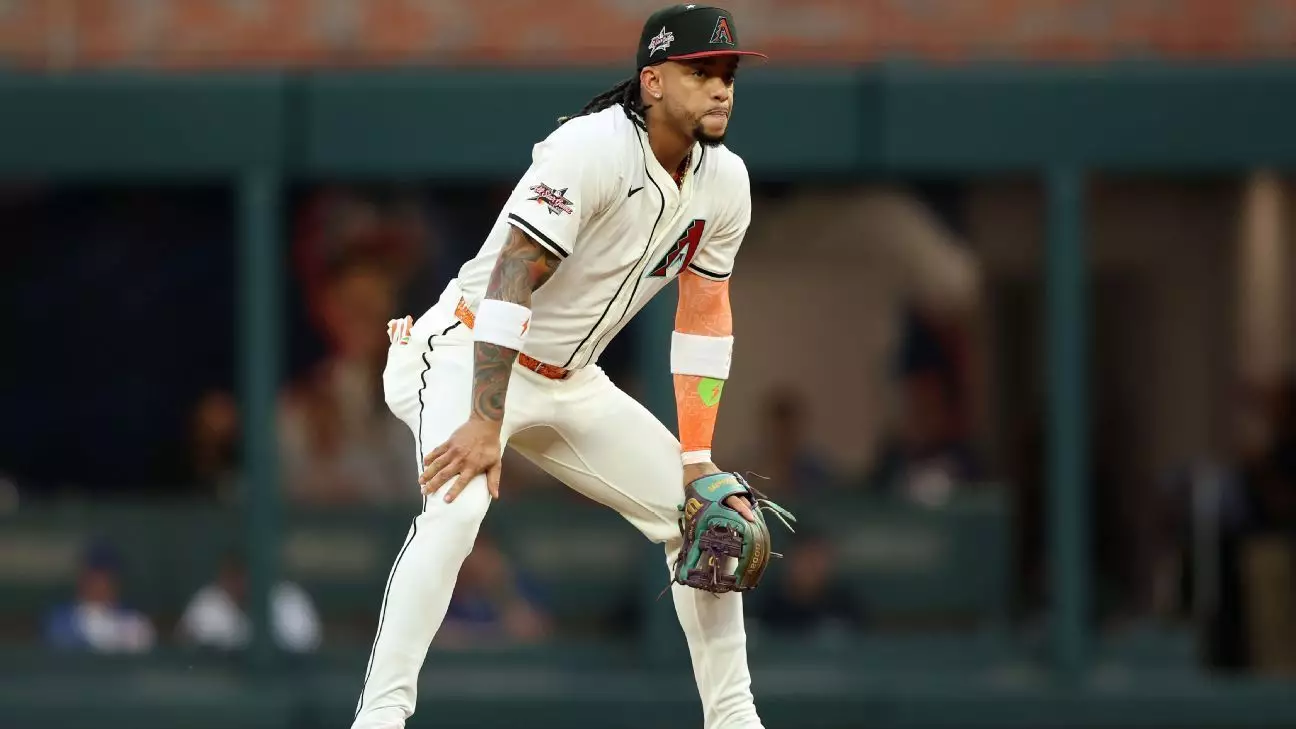In the world of sports, athletes are often revered as paragons of discipline, consistency, and dedication. Society tends to hold these figures to an almost untouchable standard, expecting unwavering commitment both on and off the field. However, beneath the glossy veneer of athletic excellence lies a complex reality—one that involves human imperfection, emotional struggles, and personal setbacks. Ketel Marte’s recent controversies exemplify this truth, forcing us to reevaluate how we perceive athletic professionalism. He is undeniably performing at a high level, yet his off-field struggles have ignited criticism and scrutiny. This dichotomy underscores that even the most talented athletes are susceptible to vulnerabilities, mistakes, and lapses in judgment. Recognizing this human dimension is essential for fostering a more compassionate and realistic understanding of sports figures.
Accountability in the Face of Personal Crisis
Marte’s situation reveals the importance of accountability amid personal turmoil. His absence from the team following a burglary and personal frustration was met with public criticism, often emphasizing a perceived lack of professionalism. However, the narrative gains depth when examined with empathy. Personal crises, such as home invasions, can profoundly impact mental health and focus—particularly for athletes under intense media and fan scrutiny. Marte’s decision to apologize publicly, through an interpreter, demonstrates a willingness to confront his missteps and communicate openly—a level of vulnerability that is commendable yet often undervalued in competitive sports. It invites us to question whether society unfairly penalizes athletes for circumstances beyond their control, or if it simply demands a level of perfection that no human can consistently attain.
The Power of Honest Reflection and Growth
What stands out about Marte’s story is not merely the controversy but his response—an earnest acknowledgment of his struggles and a public apology. This act of transparency can serve as a catalyst for growth, both for him and for the culture surrounding sports. When athletes openly address their shortcomings, it humanizes them and fosters a sense of shared resilience. It challenges the stereotype of the invincible athlete who must always perform flawlessly, highlighting instead the importance of mental fortitude and honest self-assessment. Managers like Torey Lovullo praise Marte for showing vulnerability, emphasizing that real leadership extends beyond mere performance metrics; it involves owning one’s mistakes and striving for betterment. Such openness encourages fans and peers alike to view setbacks as opportunities for learning rather than definitive failures.
The Double-Edged Sword of Expectations and Criticism
The backlash Marte experienced underscores a more systemic issue within professional sports—the relentless demand for perfection combined with unrealistic expectations. When a player like Marte, who is statistically stellar this season, faces criticism for missing games, it reveals a narrow view of what commitment entails. Professional athletes are often caught in a contradictory stance: expected to give their all every single day yet also allowed, or sometimes expected, to be fully human. The dissonance becomes especially evident during pivotal moments, such as the trade deadline, where potential team reshuffling reflects organizational doubts and strategic recalibration. The team’s trading decisions post-Marte’s absence suggest that internal frustration and performance concerns are intertwined, revealing a fragile balance between individual accountability and team cohesion.
Redefining Leadership and Resilience in Sports
Ultimately, Marte’s narrative prompts us to reevaluate what true leadership looks like in athletics. Resilience isn’t demonstrated solely by sustained statistical excellence but also by how athletes handle adversity—be it personal setbacks, injuries, or public criticism. By openly addressing his off-field struggles, Marte exemplifies a form of resilience rooted in authenticity. This approach can have a ripple effect, inspiring teammates, coaches, and fans to embrace imperfections and prioritize mental health and well-being alongside performance. The reality is that greatness is not the absence of flaws but the courage to confront them head-on. As society increasingly recognizes the importance of mental health, sports as a platform must evolve to value transparency and vulnerability as strengths rather than weaknesses.
In embracing this new narrative, we shift from venerating the myth of the infallible athlete to celebrating resilient individuals who lead with honesty and grit. The game might be about numbers and wins, but behind every statistic lies a story of human perseverance, vulnerability, and growth.


Leave a Reply